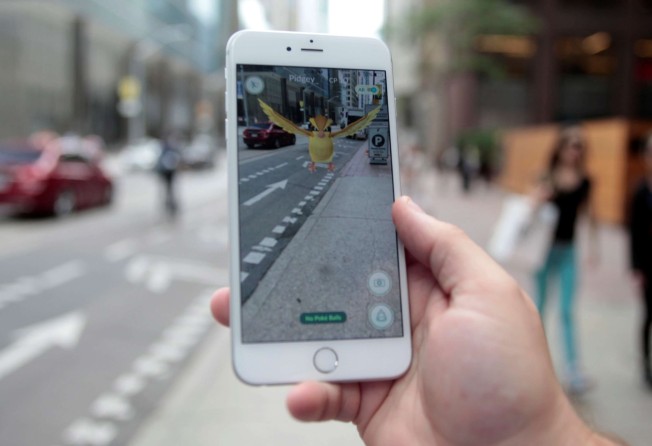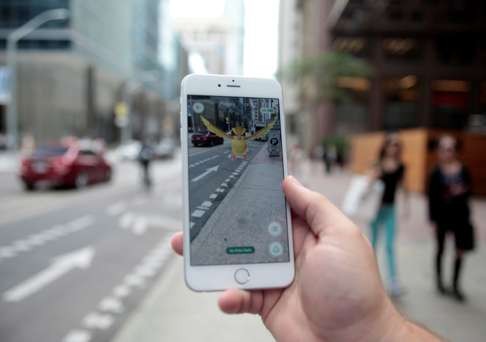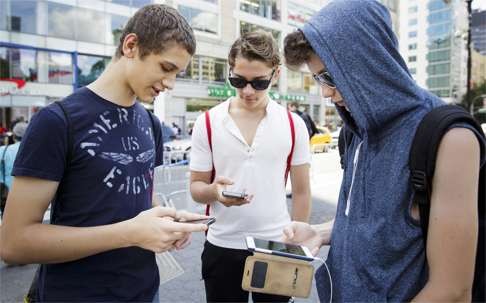Monster hit: Pokemon Go phenomenon astonishes gaming industry, boosting Nintendo by US$7bn

Game developers around the world have watched in astonishment since the weekend as Pokemon Go, a mobile version of the beloved 1990s game from Nintendo Co, became an instant hit - rocketing to the most downloaded app on both Apple and Android phones.
The maker of Super Mario and Zelda games has added more than US$7 billion in market value since Friday’s debut of the new smartphone app for its fantasy monster character franchise. The game was poised to surpass Twitter in daily active users on Android, according to data published by SimilarWeb, an information technology firm. And on the Google Play store, it’s ranked No 1 above Facebook, Snapchat and Instagram.
It’s too soon to say if its success will reshape the US$25 billion mobile gaming industry, but this much is certain: the surprise hit will inspire copycats.

Much will depend on whether Pokemon Go’s success endures and whether rival game makers can duplicate the underlying technology. Pokemon Go brings together two key features: the location-mapping common to many apps, and augmented reality, or AR, which overlays a virtual world on the real one. After downloading the app, players wander around the real world, navigating via an animated version of Google Maps, searching for Pokemon characters to capture and add to their team.
The technology comes from Niantic Inc, a company founded by Google and spun off last year. In 2013, Niantic created Ingress, in which opposing teams capture “portals” based on real-world landmarks.
The game is mostly a cult phenomenon and hasn’t attracted mainstream casual gamers. Then Niantic teamed up with Nintendo and created Pokemon Go, which became an international phenomenon, despite being released only in the US, Australia and New Zealand.
Some analysts see the game’s success as a big lift for artificial reality, which has yet to live up its hype. “This is the first time that there’s mass adoption of an AR application,” said Joost van Dreunen, who runs SuperData Research. “This could be the Angry Birds of AR.”

Duplicating Pokemon Go’s success won’t be easy. Niantic has had years to refine the technology, said Gartner analyst Brian Blau. This makes the mechanics of the game difficult to replicate, even as other developers try to pile in, he said. At the same time, the enduring popularity of Pokeman is a big driver of the new game’s success. The millennial generation grew up with the franchise, which has almost 20 feature films and seven generations of handheld games. In addition to young fans, there’s an entire generation of grownups who can tell the difference between a Pikachu and Raichu.
Olson, the Piper Jaffray analyst, says imitators are inevitable because “that’s the nature of mobile gaming. There will be other games that have moderate success but it’s unlikely we’ll see another game have this much success at least right out of the gates.”
Furthermore, some analysts said Nintendo’s Pokeman Go success will be fleeting. Its augmented reality technology is fairly rudimentary. Users have complained of server issues, miscreants are already seizing on the phenomenon to lure unwitting players into traps, and in some cases the game gains access to Gmail and other Google apps without a player’s knowledge. Finally, there’s the fickle nature of gamers.
“The game requires couch potatoes to get off the couch, and the novelty will wear off when they get tired or when their phone batteries die,” says Michael Pachter, a Wedbush Securities analyst. “I give this four months at the top of the charts, then it will fade.”